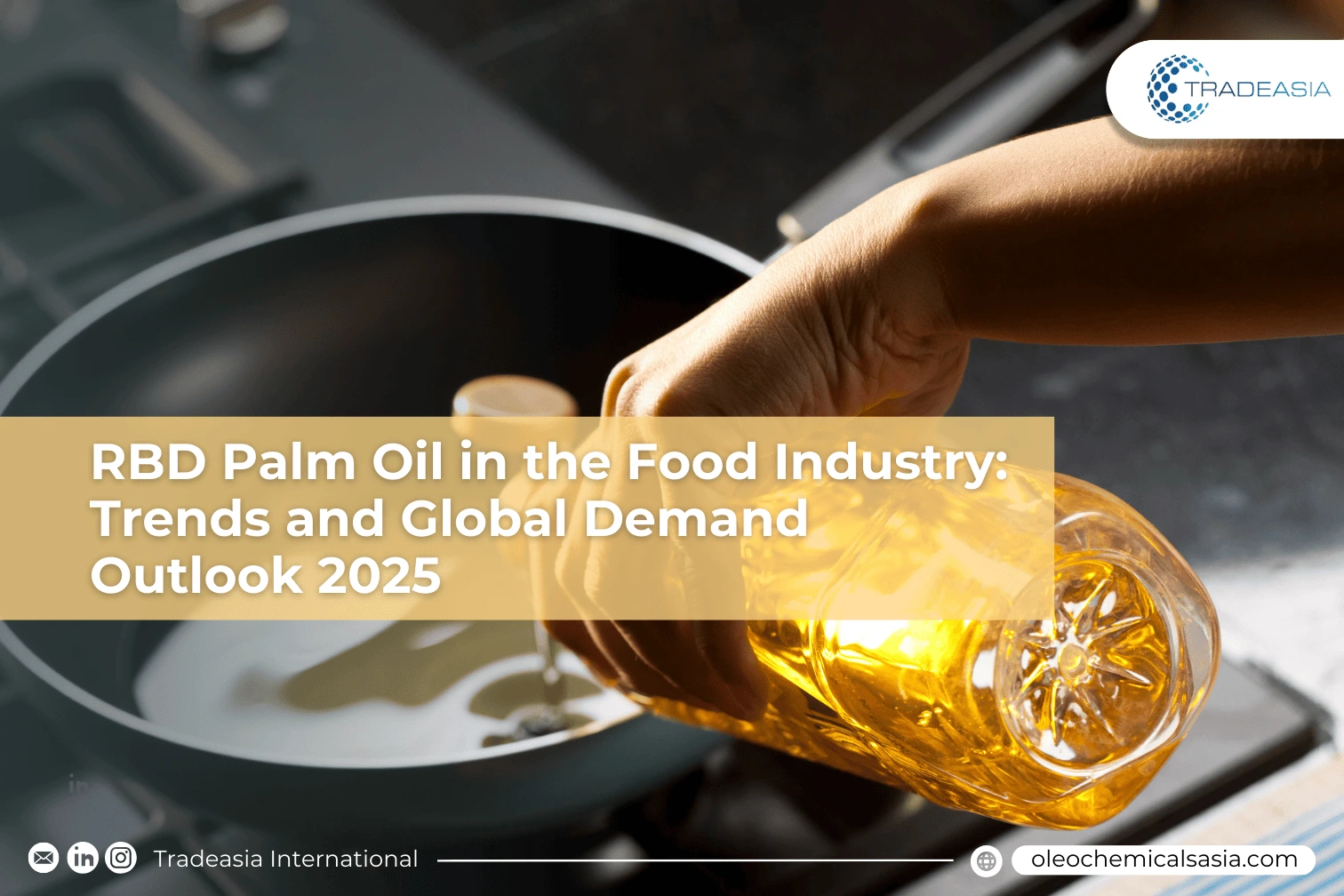A Versatile Ingredient Driving the Global Food Market
RBD (Refined, Bleached, and Deodorized) Palm Oil continues to play a central role in global food manufacturing. Known for its versatility, stability, and cost-effectiveness, this ingredient is essential in margarine, shortening, bakery fats, and confectionery, enhancing texture, shelf life, and flavor across diverse applications. By 2025, RBD Palm Oil remains indispensable in Asia and Europe—the two largest markets—where consumption patterns reflect both growing demand and evolving consumer preferences.
In food processing, RBD Palm Oil is valued for its ability to provide consistency and spreadability in margarine and shortening, as well as tenderness and moistness in cakes, pastries, and cookies. For confectionery, it ensures smooth textures and desirable melting qualities, vital for chocolates and pralines. Its high oxidative stability also makes it ideal for deep-frying snacks and processed foods, allowing crispier results with less oil absorption compared to alternatives such as sunflower oil. These qualities explain why RBD Palm Oil continues to be the preferred choice among manufacturers worldwide.
Market data show a dynamic picture. India imported more than 4 million metric tons of RBD Palm Oil in 2023, underlining its role as the largest buyer, with local prices ranking among the highest globally due to strong domestic demand and reliance on imports. China also remains a key driver of growth, while Southeast Asian producers—primarily Indonesia and Malaysia—continue to lead exports. However, Indonesia’s export volumes have seen some reduction, influenced by higher biodiesel allocations and stricter environmental compliance measures introduced in mid-2025. Meanwhile, European demand remains steady, especially in food processing and oleochemicals, although stricter EU rules on non-certified palm oil are shifting purchasing behavior toward sustainable, certified oils.
Looking Ahead: Growth Opportunities and Emerging Challenges
The global demand outlook for 2025 suggests moderate yet steady growth. The Asia-Pacific region will see the strongest momentum, fueled by rising processed and packaged food production, while Europe’s food manufacturing sector is expected to expand at a stable pace. Yet, beyond growth, shifting consumer expectations are reshaping the market. Sustainability is becoming a competitive advantage, with increasing preference for oils certified by RSPO (Roundtable on Sustainable Palm Oil) and ISCC (International Sustainability and Carbon Certification). These certifications align with global priorities on reducing deforestation, lowering carbon footprints, and improving labor practices—factors that are increasingly tied to market access and brand credibility.
Health concerns also remain part of the discussion, particularly around palm oil’s saturated fat content. Some manufacturers are testing blends with other vegetable oils, but RBD Palm Oil’s balance of cost-effectiveness and functionality continues to secure its market position. Industry players must also navigate logistical challenges such as fluctuating freight costs and supply chain constraints, which can impact pricing and availability in the short term.
In conclusion, RBD Palm Oil is set to maintain its status as a cornerstone of the global food industry through 2025. Its functional advantages, coupled with competitive pricing, ensure strong demand, particularly in Asia and Europe. However, the market is also evolving under the influence of sustainability regulations, consumer health awareness, and supply chain dynamics. For companies involved in palm oil trading and food manufacturing, success will depend on closely monitoring regulatory shifts, aligning sourcing with sustainability expectations, and seizing opportunities in emerging demand markets.
This balanced outlook highlights RBD Palm Oil not only as a staple commodity but also as a product at the center of transformative trends shaping the global food sector in 2025.

Leave a Comment